8 start with G start with G
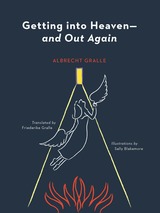
Imagine that you've just died. An angel appears in front of you, ready to guide you to the next life. You say to him, "I want to go to heaven." His reply, "OK, let's go!"
In this light-hearted tour of the afterlife, based on the writings of Swedish scientist-turned-seer Emanuel Swedenborg, Albrecht H. Gralle takes the reader on a tour of heaven, hell, and the spaces between. What is it like in heaven? What about hell? What happens to people who have suffered horribly in this life? How do we reconcile that suffering with the idea of an all-loving God? What happens to people who simply don't believe in anything beyond this world? What happens to the people who do? Is there sex in heaven? What about tea?
During pauses in the tour, Gralle poses some hard-hitting questions about the nature of belief that speak directly to people who wonder how a modern, rational person can have faith in the absence of proof. The result is at once humorous and thought-provoking.
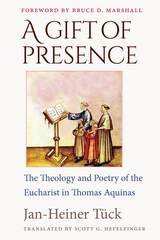
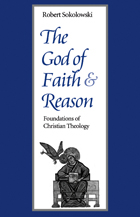

A record of the 2015 Building Bridges Seminar for leading Christian and Muslim scholars, this collection of essays explores the nature of divine and human agency through themes of creation’s goal, humankind’s dignity and task, and notions of sovereignty. Part I sets the context for the book with “Human Action within Divine Creation: A Muslim Perspective” by Mohsen Kadivar of Duke University and “On the Possibility of Holy Living: A Christian Perspective” by Lucy Gardner of Oxford University. The rest of the book includes paired essays—one from a Muslim perspective, one from a Christian perspective—that introduce scriptural material with commentary to aid readers in conducting dialogical study. In her conclusion, coeditor Lucinda Mosher digests the illuminating small-group conversations that lie at the heart of the Building Bridges initiative, conversations that convey a vivid sense of the lively, penetrating but respectful dialogue for which the project is known. This unique volume will be a valuable resource to scholars, students, and professors of Christianity and Islam.
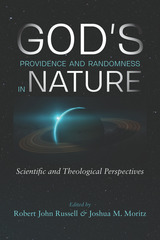
In October 2014, a group of mathematicians, physicists, ecologists, philosophers, and theologians gathered at a special conference in Berkeley, California, to present the results of a two-year research program dubbed “Project SATURN.” This program explored many rich avenues of thought at the intersection of modern science and Christian theology. Chief among them is the possibility that specific processes might be so complex that they do not have sufficient physical causes. Known as “ontological indeterminism,” this idea has profound implications for theology. Specifically, it allows God to be thought of as acting providentially within nature without violating the laws and processes of nature.
Such a momentous insight could influence how we understand free will, natural evil, suffering in nature, and the relation between divine providence and human evolution. The essays collected here discussed these topics and were initially presented at the 2014 conference. Part I establishes the scientific basis for conceptualizing specific processes in the universe as inherently random and possibly indeterministic. Part II discusses the philosophical and theological issues that spring from this understanding. Together they represent the cutting edge of thought in the increasingly productive dialogue between science and theology.
Short for the “Scientific and Theological Understandings of Randomness in Nature,” Project SATURN was created by the Center for Theology and the Natural Sciences, a Program of the Graduate Theological Union, Berkeley. It was funded with a grant administered by Calvin College and provided by the John Templeton Foundation.
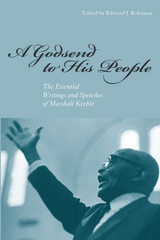
Despite his impact on the religious culture of the South, there has been scant information available about this extraordinary individual-until now. With the his new book, A Godsend to His People, Edward J. Robinson brings to light over forty years of Keeble's writings.
This collection shows the human side of Keeble, revealing his concern for the souls of his faithful followers and the pragmatic way in which he ran his ministry. The sermons and other writings give great insight into the struggles of a prominent African American trying to navigate his way through the challenges of conducting his ministry in the segregated world of the Jim Crow South.
Robinson draws on a variety of sources in which Keeble was published, including the Gospel Advocate and the Christian Echo, as well as lectures Keeble gave to students at Abilene Christian College. Through these pages, the reader will learn more about this articulate, passionate, and intelligent man.
A Godsend to His People is the first scholarly treatment of this evangelist and will appeal to those interested in the history of the Church of Christ and religious studies.
Edward J. Robinson is assistant professor of history and biblical studies at Abilene Christian University. He is the editor of To Lift Up My Race: The Essential Writings of Samuel Robert Cassius and author of To Save My Race from Abuse: The Life of Samuel Robert Cassius.
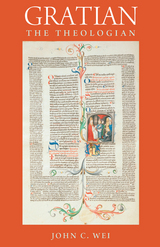

This book is the first comprehensive analysis of the thought of Ignacio Ellacuría, the Jesuit philosopher-theologian martyred for his work on behalf of Latin America's oppressed peoples.
While serving as president of the Jesuit-run University of Central America in the midst of El Salvador's brutal civil war, Ellacuría was also a prolific writer. His advocacy on behalf of the country's persecuted majority provoked the enmity of the Salvadoran political establishment. On November 16, 1989, members of the Salvadoran military entered the university's campus and murdered Ellacuría, along with five other Jesuit priests and two women.
Kevin F. Burke, SJ, shows why Ellacuría is significant not only as a martyr but also as a theologian. Ellacuría effectively integrated philosophy, history, anthropology, and sociopolitical analysis into his theological reflections on salvation, spirituality, and the church to create an original contribution to liberation theology.
Ellacuría's writings directly address one of the most vexing issues in theology today: can theologians account for the demands arising from both the particularity of their various social-historical situations and also the universal claims of Christian revelation? Burke explains how Ellacuría bases theology in a philosophy of historical reality—the "ground beneath the cross"—and interprets the suffering of "the crucified peoples" in the light of Jesus' crucifixion. Ellacuría thus inserts the theological realities of salvation and transcendence squarely within the course of human events, and he connects these to the Christian mandate to "take the crucified peoples down from their crosses." Placing Ellacuría's thought in the context of historical trends within the Roman Catholic Church, particularly Vatican II and the rise of liberation theology in Latin America, Burke argues that Ellacuría makes a distinctive contribution to contemporary Catholic theology.
READERS
Browse our collection.
PUBLISHERS
See BiblioVault's publisher services.
STUDENT SERVICES
Files for college accessibility offices.
UChicago Accessibility Resources
home | accessibility | search | about | contact us
BiblioVault ® 2001 - 2024
The University of Chicago Press









